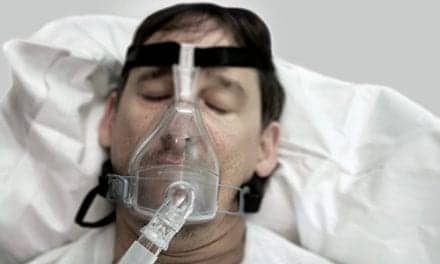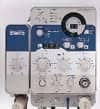SCCM incorporates a multidisciplinary approach to acute care, which provides the best care possible for its patients.

Model of Care
While each model of care may vary from one critical care unit to another, the ICU at St Francis Medical Center in Pittsburgh exemplifies the team environment that the SCCM supports. The intensivist group, headed by John Hoyt, MD, and the critical care department’s director, Mike Hansen, MD, have recognized the value of the multidisciplinary team. Respiratory therapists, along with registered nurses, pharmacists, social workers, and critical care technicians, all participate in this working model. The respiratory therapists are an integral part of the team, with RTs represented in all aspects of critical care medicine. The following are some of the positions that are occupied by RTs at the St Francis Critical Care Medicine Department Respiratory therapist participation includes daily MD report and patient goal planning, bedside teaching rounds, and staff education. The ICU respiratory therapist coordinator participates in the Ethics Committee, the Critical Care Journal Club, the ICU Leadership Committee, and the Research Committee. The daily MD report is a physician-to-physician shift report that all discipline representatives are encouraged to attend. Respiratory therapists often report on observations or weanings that may have occurred and discuss patient goals and expectations. Patient teaching rounds give opportunities for RTs to provide information on patients’ current conditions and discuss their outcomes. The ICU respiratory therapist coordinator participates in meetings of the Ethics Committee, which, at St Francis, is affiliated with Duquesne University in Pittsburgh. Headed by David Kelly, PhD, director of medical ethics at the university and chaired by Dr Hoyt, the Ethics Committee encompasses ethic consults done on patient situations that present a moral or physical dilemma with unclear answers, along with other gray areas of ethical concern to present-day health care. The Critical Care Journal Club is held monthly. The RT coordinator is responsible for obtaining articles from the Respiratory Care journal of the American Association for Respiratory Care (AARC). The ICU Leadership Committee is comprised of nurse managers, the ICU respiratory therapist coordinator, the critical care technologist, and the MD director. The purpose of the committee is to discuss problems and establish goals for the future of the ICU. The respiratory therapy coordinator is involved with several research projects. Education is an ongoing process provided by respiratory therapists to all those involved with critical care.
This model is not uncommon as critical care departments around the world have similar structures. The SCCM recognizes this and creates an atmosphere where we can all learn from each other. It is very refreshing to see that other disciplines such as physicians and nursing consider the respiratory care discipline a valued part of the team. There are many respiratory therapists in critical care medicine with a tremendous amount to offer to the SCCM. We have been fortunate thus far in the efforts of many RTs who have provided education and research for the society. Most recently, at the February 2000 annual convention in Orlando, Fla, Richard Branson, RRT, Theresa Shultz, RRT, Nick Widder, RRT, Bob Campbell, RRT, Paul Mathews, PhD, RRT, FCCM, and Paul Oulette, RRT, FCCM, contributed to the education of society members.
About SCCM
The SCCM has set a stage for critical care team members to come together, meet, share, learn, and network with other ICU teams around the world. The society consists of chapters and sections. Chapters are local organizations, usually on the state level, that can include several states together. There are 14 sections, respiratory care being one of them. Each section and chapter has a nomination for a council member. The larger sections have designated council seats. The SCCM publishes a Journal of Critical Care, has an annual national convention, and has local chapters where meetings take place.
The Respiratory Care Section
The purpose of the Respiratory Care Section is to provide an avenue for respiratory therapists to contribute to the SCCM. Our goal is to get respiratory therapists at the grass roots level who we know have something to contribute and provide them with the means to do so. The section committee that has been assembled is a talented group of RRTs capable of assisting anyone interested in learning how to present a poster, an abstract, or a lecture. We recently completed a Respiratory Care Section meeting where Paul Mathews, associate professor of respiratory care education at the University of Kansas in Kansas City, said, “RTs do not realize how easy it is to get an article published.” Theresa Shultz, RRT, at Children’s Hospital of Philadelphia presented several abstracts at the national convention in Orlando and one in Harrisburg, Pa. The respiratory department at her hospital had nine posters at the AARC convention last year.
Moving Ahead
This is our first year for assembling formally and we have some small hurdles to get over but we have had a good start. The headquarters of SCCM has recently moved from California to Chicago, shifting focus for a brief period to a smooth move and limiting office support. But in spite of that, we are moving forward with the help of volunteers. Our mission is to provide technical expertise and guidance in airway management, mechanical ventilation, and physiologic monitoring. The section will communicate to the society about issues dealing with respiratory care practice. Our purpose is to provide support to the society and section members through research and education in the clinical, scientific, and technical aspects of patient care. The section designed these areas of research and education along with communication for all RRTs who have something to contribute. The education branch is chaired by Paul Mathews, research by Theresa Shultz, and communication by Lois Drumheller, RRT, of Respironics. Drumheller is coordinating the Internet Web page for the section as well as communicating information on events and deadlines. There are awards for posters and abstracts at the national conference for each section. There is also a fellowship program (FCCM) that can be earned.
How RCPs contribute
Through the education, research, and communication divisions of the section—education in the form of articles and lectures, research in the form of abstracts and posters, and communication through the development of newsletters and the Internet.
There is a lot of talent among practicing respiratory therapists and all are encouraged to get involved through the Respiratory Care Section chairs, to express interest in any of the areas you can contribute to.
Make plans to join us at our first annual Respiratory Care Section business meeting in February at the national convention in San Francisco. Nick Widder, who presided as coordinator at last year’s meeting in Orlando, will be inducted as chairman for 2001. In addition, the SCCM has recently established a pediatric care division that will have its own journal.
Patrick Yorio, RRT, is the chair of the Society of Critical Care Medicine and ICU coordinator at St Francis Medical Center, Pittsburgh.










